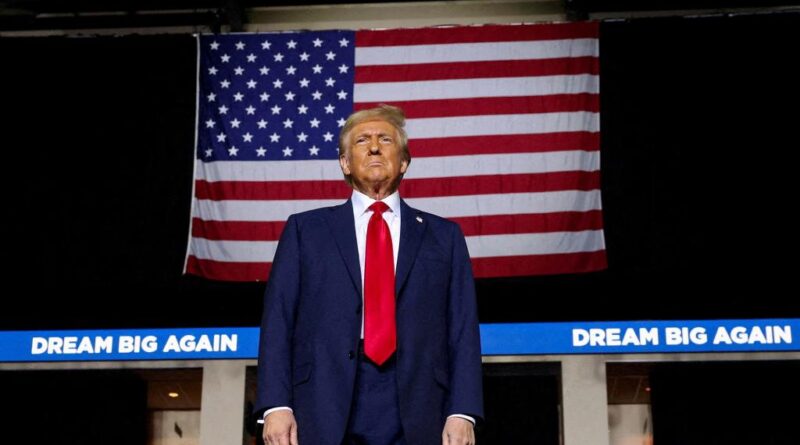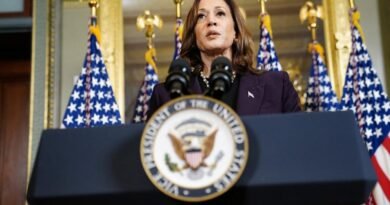Revival of American Spirit: How Trump’s Victory Sparked a National Mood Shift

A former student recently reached out to me about the aftermath of Election Day.
“It feels like a shift has occurred, resembling the Reagan ’80s more than at any point in my life,” he expressed in awe.
I concur.
It’s not just that Donald Trump is poised to reclaim the presidency, while Kamala Harris seems to have already retreated to the Mike Dukakis Home for Failed Democratic Candidates, where she can enjoy box wine and snarky comments with Hillary Clinton.
The collective sentiment of the nation, and perhaps the world, has transformed dramatically overnight.
From the exoneration of Daniel Penny, to the reopening of Notre Dame cathedral in Paris attended by Western leaders, including Trump but notably not Joe Biden, to the exhilarating success of SpaceX’s Starship and a shift in relations with countries like Mexico and Canada that were previously difficult — these past weeks have echoed a loud proclamation of “We’re back, baby!”
That’s one of the purposes of elections.
Every few years, the nation experiences a kind of rebirth.
We select new leaders, alter policies, and reshape our self-perception to some degree.
During Biden’s administration, the national outlook was largely bleak.
He can be compared to America’s King Lear, a leader whose mental faculties have waned.
(Jill Biden and Kamala serve as fitting substitutes for Regan and Goneril. However, unlike Lear, Biden lacked a faithful Cordelia).
The presidency, in Shakespearean terms, has become a tale told by an idiot, signifying nothing.
That description also aptly summarizes Biden’s debate performances.
As that performance made it clear that Biden was not only too frail to govern — a fact that the insider circle was unconcerned about — but also too frail to run a successful campaign, he was cast aside without ceremony.
Although Harris, as his successor, had never garnered a Democratic delegate, no one challenged her hastily pushed nomination.
She conducted a lackluster campaign under the slogan of “Joy,” yet in reality, was merely another piece in the Democratic machinery attempting to masquerade as spontaneous.
Her campaign suffered a crushing defeat, and now everything has changed.
Under Biden, and especially with Harris slated to follow, America’s future appeared grim.
Now, optimism is on the rise, and various issues that once seemed insurmountable — such as immigration, debt reduction, education reform, government efficiency, and military enhancements — are now being tackled by capable individuals.
Indeed, that’s what elections are meant to achieve.
However, those in power are not pleased with this outcome.
Through a mix of censorship (in 2020, The Post’s reporting on Hunter Biden’s laptop was dismissed as Russian disinformation; in 2024, Joe pardoned Hunter based on what was on that very laptop), coercion from mobs and cancel culture, and relentless pressure from a compliant media, Democrats managed to create an illusion that those dissatisfied with the status quo were a weak minority.
We lived under a milder form of tyranny, a situation known as “preference falsification.”
If it’s unsafe for individuals to voice their true opinions, a majority can feel hopelessly outnumbered.
This strategy was effective until the election demonstrated that most Americans were not aligned with policies such as open borders, a DEI-centric military, woke racial politics, contradictory diplomacy, and rampant corruption.
Another key role of elections is that they unveil the genuine preferences of the electorate.
The interplay of Trump’s win and Elon Musk’s acquisition of Twitter (now X) has also transformed the latter into a platform for free speech rather than a bastion of censorship.
(Elite progressives have migrated to a new censorship haven called BlueSky; their grievance against X isn’t about their own censorship, but rather the lack thereof for their adversaries.)
Free speech allows individuals to criticize governmental actions and express their opinions on politicians and pundits, enabling people to communicate their sentiments to others.
Preference falsification is impossible if free speech avenues exist, which is why the left has intensified efforts to suppress “misinformation” — their euphemism for truths that undermine their agenda.
Yet, censorship, preference falsification, and excessive governance are formulas for stagnation.
Free speech and genuine elections, as we are currently witnessing, pave the way for both liberty and dynamism. It’s crucial to remember this in the years ahead.
Glenn Harlan Reynolds is a law professor at the University of Tennessee and the founder of the InstaPundit.com blog.



